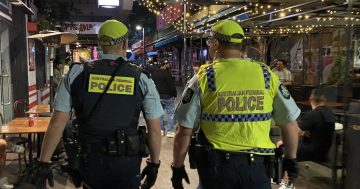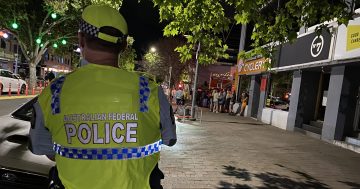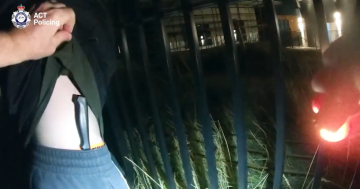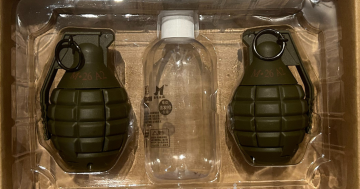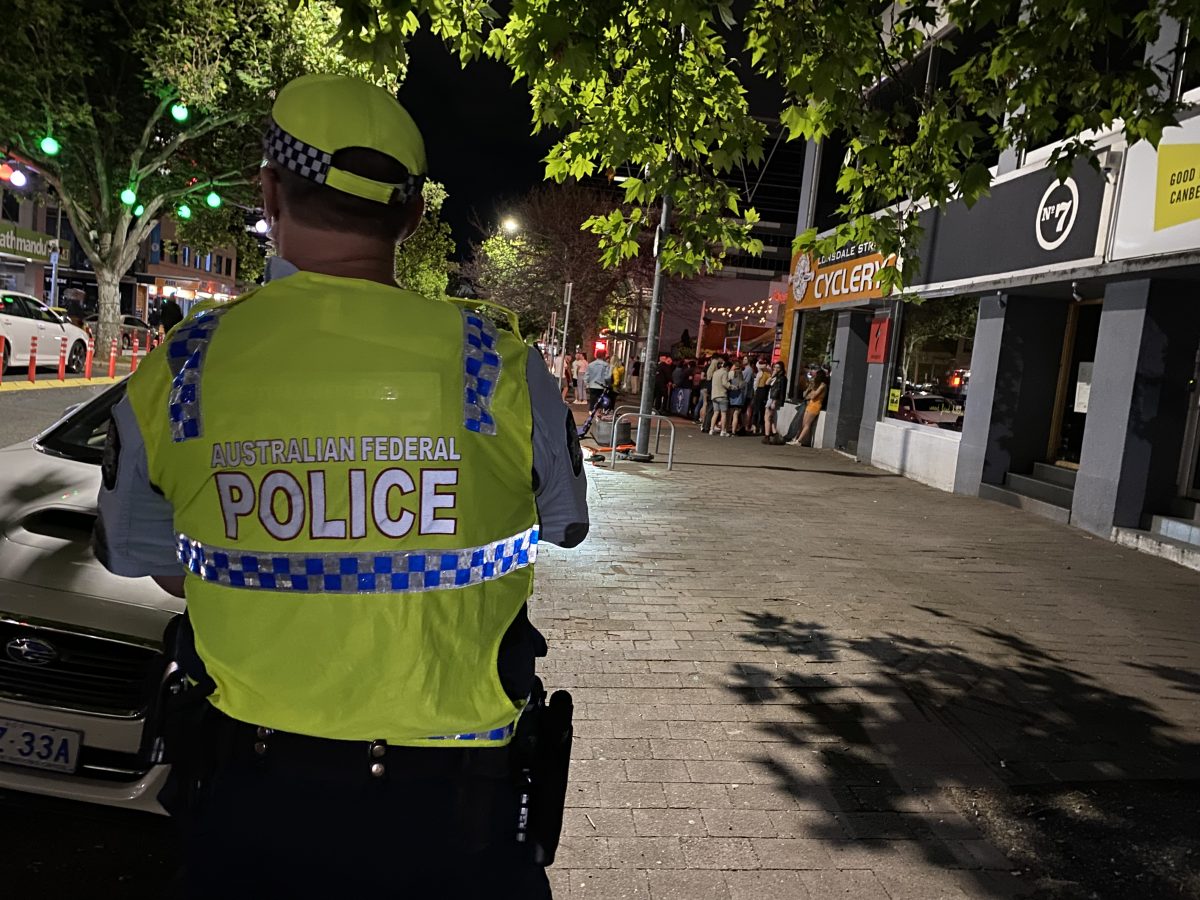
Should a metal detecting wand be part of police kit to find knives and other weapons? Photo: Claire Fenwicke.
Whenever terrible events happen, it is a natural response to think about what could have been done to prevent it.
The Bondi and ANU knife attacks were terrifying in their randomness and are now being used to justify calls for yet another increase in police powers.
The Canberra Liberals want the ACT Government to consider legislation akin to Queensland’s Jack’s Law, named after a teenager who was stabbed to death, which NSW has emulated.
It would allow police to use metal detection wands on people without reasonable suspicion in designated areas such as shopping malls, public transport hubs and nightclubs.
The carrying of knives is already an offence in the ACT, and police can stop and frisk people considered suspicious.
However, the deployment of metal detectors would take this police activity to a new level.
‘Keeping Australians safe’ rolls off the tongues of politicians these days like a mantra that justifies all kinds of infringements on hard-won civil liberties that seem so easily lost in these uncertain times, embellished by 24/7 news feeds dominated by true crime.
Many people believe that the amount of weaponry seized in the wake of Jack’s Law passing in Queensland vindicates the new police power.
It is argued that using metal-detecting wands has prevented these weapons from being used, possibly saving lives.
But that is just speculation.
What needs to be remembered is that in many – if not most – violent public attacks, mental illness is often a factor, and that is something the politicians should deal with. These are also rare, out-of-the-blue events.
In the case of the 2020 Weston skatepark stabbing, the incident occurred in a location far from any police patrol.
The fatal 2020 Kokomos brawl in the city, also cited by the Liberals, involved those not known for respecting the law.
Police would have had to have been on the spot to stop the kind of explosive violence that occurred, wand or no wand.
According to Australian Bureau of Statistics (ABS) data on recorded crime (victims) from 2022, most homicides and related offences in the Territory did not involve a weapon of any kind (78 per cent), and there was a similar trend for assaults (89 per cent had no weapon involved).
So violent knife crime, deplorable though it may be when it occurs, is not common in the ACT.
If a new law is passed, police will be asked to randomly test people going about their normal business at the shops, which will likely give them even more incentive to approach the usual suspects.
So people need to ask themselves, do they feel unsafe enough to submit themselves to regular and public scanning in what is, in effect, another extension of the surveillance state?
It should not be compared with the scanning of people at airports and other secure areas in Canberra.
Police themselves should be wary of what inevitably will be a PR disaster. Citizens will have to empty their pockets of keys, phones and any metal paraphernalia they may be carrying, which is why they will tend to go for the usual suspects, from whom there will be even more accusations of profiling and harassment.
Does the proposal stand up to a cost-benefit analysis?
In recent years, through the war on terror, COVID-19 and the continuing obsession with crime, a political penchant for a legal fix persists, usually a law framed for a specific reason that seems reasonable enough but may have unintended consequences and when added to all the others, contributes to a constant erosion of rights.
In Is the Criminal Law a Lost Cause, Andrew Ashworth says governments view this “chaotic” use of criminal law as “a multi-purpose tool, often creating the favourable impression that certain misconduct has been taken seriously and dealt with appropriately”.
“But from any principled viewpoint, there are important issues – of how the criminal law ought to be shaped, of what its social significance should be, of when it should be used and when not – which are simply not being addressed in the majority of instances.”
Out of the moral panic fanned by click-and-rate-driven media and politicians, we seem all too willing to lose any sense of proportion and allow the government to deny more and more of our individual agency.
Bad things happen, people commit heinous crimes, and people should not carry weapons of any kind unless authorised.
But unless we want to live in a society where we may be ‘safe’ but not necessarily from the police and the state, we should be clear-headed about calls for laws that detract from our way of life, not enhance it.
Canberra is one of the safest places on the planet. Our police already have enough tools to do their job. They don’t need to be waving wands around on the off chance that somebody is going to run amok.












